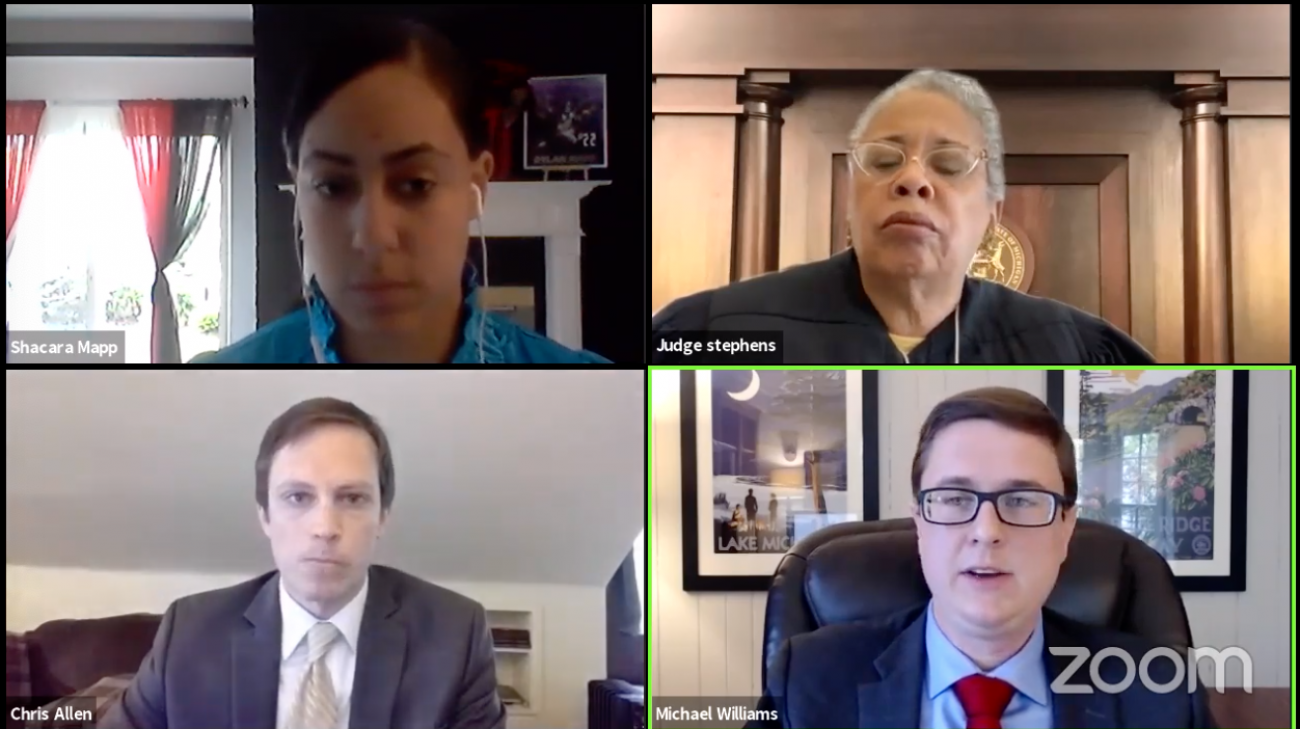Gretchen Whitmer, GOP square off in court over Michigan emergency powers

Is Gretchen Whitmer using her just authority as governor to protect Michigan amid a once-in-a-century crisis or setting a dangerous precedent by illegally ignoring the Legislature?
That was the question before Court of Claims Judge Cynthia Stephens on Friday morning in a showdown between Whitmer and the GOP-led Legislature that could determine the powers of governors during state emergencies.
The case arose from disagreement between the Republican-led Legislature and the governor over how and when to loosen restrictions intended to curb the spread of the coronavirus, which has infected 49,582 and killed 4,787 people in Michigan since March 10.
- The latest: Michigan coronavirus map, curve, chart, updated COVID-19 news
- Gov. Whitmer extends Michigan coronavirus stay-at-home order to May 28
- Whitmer reopens Michigan from coronavirus in phases: What that means to you
Leaders in the Legislature supported Whitmer’s decisions in March to close schools, restaurants and most businesses. But when Whitmer signed a second stay-at-home order in early April with tougher restrictions on retail stores and travel without the Legislature’s consent, it sparked a debate over lawmakers’ role in setting statewide policies during emergencies.
Michael Williams, a Kalamazoo-based attorney who represented the House and Senate, argued Friday that governors have unchecked power if they don’t give the Legislature a say in when states of emergency end.
“It shows the need for some checks and balances,” Williams told Stephens during the hearing, which was conducted via Zoom and broadcast live on YouTube.
“If a governor is really going to assert that degree of just generalized all-encompassing power, there needs to be some mechanism by which the people's legislators can say, ‘No, we're ready to take the reins.’”
Christopher Allen, the state’s assistant solicitor general who represented Whitmer, argued that the Legislature can influence policy by passing bills amid pandemics. He said the case should be dismissed because the Legislature doesn’t have legal standing to file suit.
He said Whitmer’s authority comes from two laws: A 1945 law that gives the governor emergency powers without legislative approval, and a 1976 law that requires the Legislature to approve emergency declarations every 28 days.
Whitmer has used both laws. Two weeks ago, when the Legislature declined to extend her original emergency declaration by the length she requested, Whitmer ended her original 28-day emergency declaration and announced new ones under both the 1945 and 1976 laws.
That prompted disagreement over whether Whitmer has the power to end emergencies after 28 days and declare new ones on the same issue.
Whitmer’s attorney argued the governor is still responsible for handling emergencies if the conditions that prompted it are ongoing, even if the Legislature doesn’t sign off on an extension.
There’s nothing in the law “about the governor's inability to continue responding if a disaster exists, and that's part of the absurdity here,” Allen told the judge.
The attorneys also debated whether the 1945 law, passed two years after a race riot in Detroit, was intended to address only local emergencies. Whitmer says the law applies statewide; lawmakers contend it can only address local emergencies.
It’s not clear when Stephens will make a decision, though an appeal is likely, first before the state Court of Appeals and ultimately the state Supreme Court. As she signed off on arguments, Stephens told lawyers the case will likely “be on its way to my big bosses, the Supreme Court.”
Arthur Siegal, an Southfield-based attorney who specializes in governmental compliance laws, said that based on the judge’s questions, he believes she will issue a split decision that doesn’t satisfy either party,
But if the Supreme Court upholds Whitmer’s use of the 1945 law, that would give Whitmer and other governors unilateral authority in emergency declarations unless private citizens challenge them in court, Siegal said.
Speaker of the House Lee Chatfield tweeted after the arguments concluded Friday that “the Legislature & people of Michigan were represented well.
“We should be choosing partnership over partisanship. That’s all we want,” he said.
The governor’s team did not immediately respond Friday to a request for comment.
See what new members are saying about why they donated to Bridge Michigan:
- “In order for this information to be accurate and unbiased it must be underwritten by its readers, not by special interests.” - Larry S.
- “Not many other media sources report on the topics Bridge does.” - Susan B.
- “Your journalism is outstanding and rare these days.” - Mark S.
If you want to ensure the future of nonpartisan, nonprofit Michigan journalism, please become a member today. You, too, will be asked why you donated and maybe we'll feature your quote next time!




